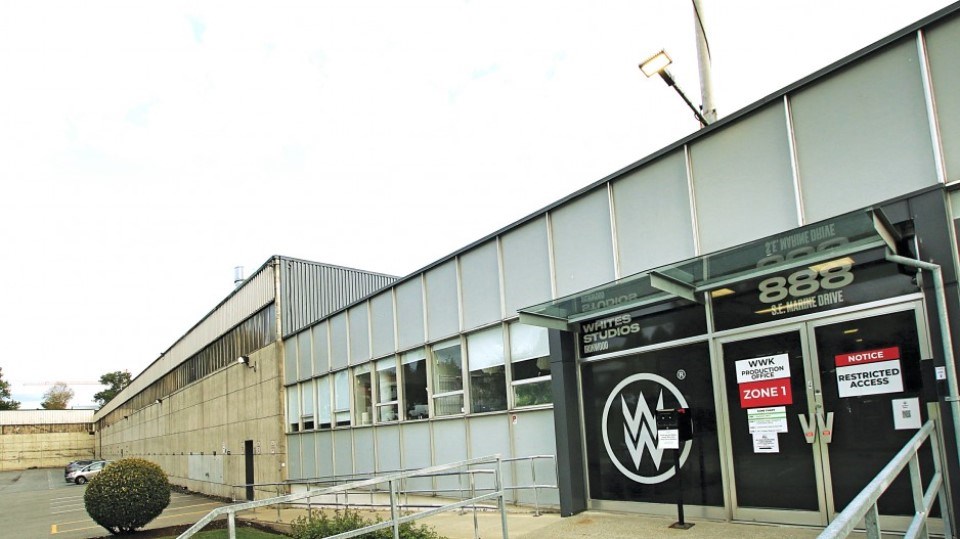With central banks accelerating rate-hikes in a bid to tamp down on inflation, prospects of a recession have been looming over the global economy as cheap capital becomes harder to come by.
Data shows B.C.’s film and TV sector has been able to weather past economic downturns and bounce back sharply. But as the prospects of another recession loom so soon after the last one, the sector must also contend with potential headwinds unique to previous hits to the economy.
When the Canadian economy fell into a recession in the wake of the 2008 financial crisis, production volume in B.C.’s film and TV industry fell from $1.68 billion to $1.36 billion between the 2007-08 and 2008-09 fiscal years, according to data from the Canadian Media Producers Association (CMPA).
The CMPA’s fiscal year runs from April 1 to March 31.
Production volume was on the upswing by the 2009-10 fiscal year, hitting $1.41 billion. And by the 2010-11 fiscal year, activity was already exceeding that of pre-recession levels, reaching $1.7 billion.
When the next recession hit Canada as a result of the pandemic, production volume went from $2.88 billion in the 2019-20 fiscal year to $3.25 billion in the 2020-21 fiscal year — the latter being the first full year of data since the outset of pandemic.
“The huge growth we’ve seen in the media production sector in B.C. over the past decade should be considered a real win for the whole province. Even in the face of a global pandemic, the industry proved its resilience,” Tracey Friesen, managing vice-president of the CMPA’s B.C. branch, said in an email, adding the province benefits from the crews and infrastructure that have been built up over the years.
“It’s hard to predict the future, but these strengths would certainly help the sector weather a period of economic uncertainty should such a situation develop.”
CMPA data also shows B.C. leading the way in Hollywood productions coming to Canada. The province handled 52 per cent of all foreign service work in the country last year.
Ontario, which is B.C.’s biggest rival within the film and TV sector, has a far more robust domestic industry.
Ken Peacock, chief economist at the Business Council of British Columbia, said that would work in the favour of the West Coast in the event of a recession.
“I would argue it delivers more benefits and arguably is a plus, not a negative, being able to attract in the international marketplace,” he said, likening it to international tourists’ willingness to spend more money vacationing in B.C. than domestic tourists spend.
At the same time, he said, attracting larger foreign productions also insulates the province from swings in demand in the much smaller domestic market even if there is a slump in Hollywood.
Peacock said the huge increase in consumption of streaming services over the past few years has also been a significant boon to B.C. film workers and infrastructure.
Meanwhile, Vancouver has been the favoured landing spot of major animation and visual effects studios in recent months.
Since August 2021, Disney Co., Double Negative Ltd. (better known as DNEG) and Weta FX Ltd. have all announced plans to open new studios in the city and hire hundreds of digital artists.
But the industry is facing potential headwinds beyond the prospect of a global recession.
Late last month, the B.C. chapter of the Directors Guild of Canada voted in favour of a strike mandate after failing to reach an agreement with negotiating employers, the CMPA and the Alliance of Motion Picture and Television Producers.
The employers said labour uncertainty could force producers to look elsewhere for future movies and TV shows.
Meanwhile, shares of Netflix Inc. have been tanking recently. They fell from nearly US$700 in November 2021 to under US$170 by early May. The sharpest decline came last month when the streaming giant revealed it had lost subscribers for the first time in a decade.
Chief financial officer Spencer Neumann told investors that Netflix would be “pulling back” on how much it spends on content after putting US$17 billion towards making film and TV shows — many of which are shot in B.C. — in the 2021 fiscal year. But co-CEO Ted Sarandos also indicated during an investor call the company would maintain spending, leaving uncertainty over just how much money the world’s largest streaming service will be putting into future productions.
“You’ll see them tightening their belts a little bit, but I don’t think you’re going to see a decline in content being produced,” said Alex Godfrey, co-founder of Vancouver’s Ironwood Studios.
He helped launch the facility in 2015 by converting a warehouse into studio space amid significant studio shortages across the region (Netflix’s A Series of Unfortunate Events was among the first TV productions to book space there).
Ironwood has since been acquired by William F. White International Inc., where Godfrey now serves as vice-president of studios.
“I think you will see some smarter spending. But ultimately, I don’t think we’re going to feel it.”
Godfrey added that even if one streaming giant pulls back on spending, services such as Amazon Prime Video, Apple TV+ and Disney+ will jump on the chance to secure studio space regardless of any recession.
“I think people — even during the recession — will find ways to afford those services.

